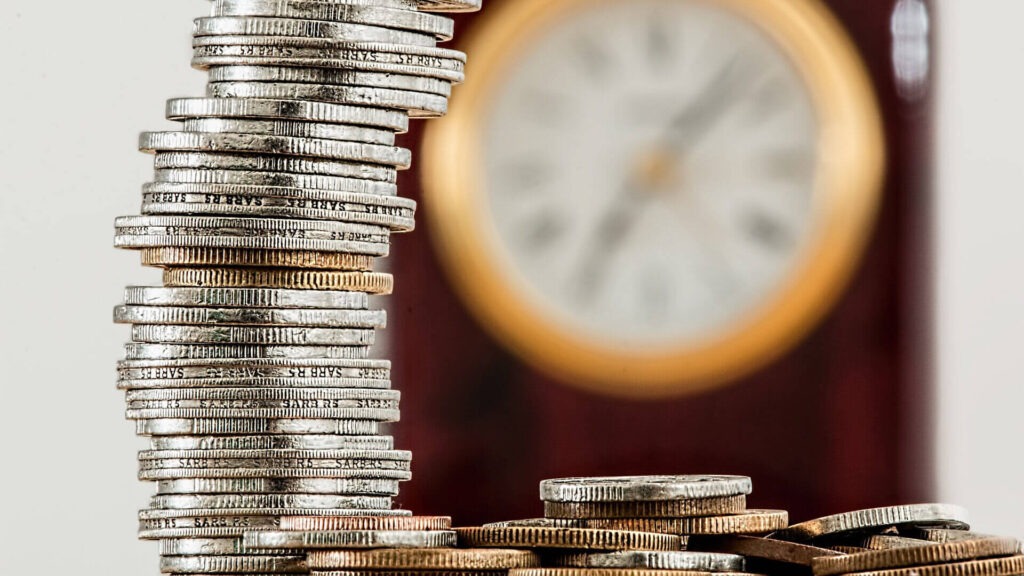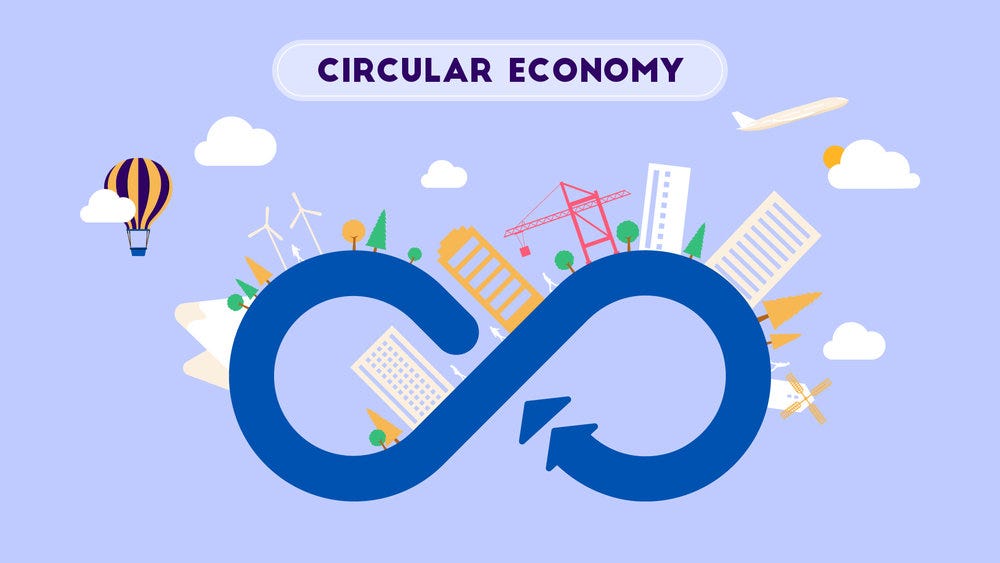How Do Economic Cycles Impact Investment Strategies?
Economic cycles affect all financial decisions and are a significant factor in determining investment strategies. If I were to simply define economic cycles, I would say that they are cycles consisting of periodic periods of growth and contraction in an economy. Economic cycles can generally be defined with 4 different stages. These mostly consist of economic growth, the peak where growth reaches its highest point, economic contraction or stagnation, and the lowest point of contraction, the bottom stages.
In periods of stagnation, investment strategies with lower risk and lower risk tolerance are preferred, while investment instruments with high return potential attract more attention in periods of growth. This basic orientation is one of the signs that economic cycles directly affect investment strategies and investment types.
Different countries and different economic situations directly affect the investment reflexes of people in those countries. For example, investors in China, which experiences financial growth within the scope of economic cycles, and investors in Argentina, which is in a period of contraction within the scope of economic cycles, do not have the same investment instruments or the same risk tolerance. While Argentine investors tend to focus more on investment instruments defined as safe havens, Chinese investors may also have the opportunity to experience innovative and relatively riskier investment types.
What Are The Best Investment Strategies During Economic Downturns?

Economic downturns are periods of stagnation that can be experienced even in developed countries from time to time. These are periods in which financial growth stops, which investors of almost all levels should be prepared for during economic downturns. For this reason, investors turn to low-risk investment instruments such as gold during economic downturns.
Apart from precious metal investments such as gold, investors evaluate their assets in defensive sectors instead of turning to new business areas during economic downturns. Defensive sectors are sectors such as food and health, which have lower risk compared to other sectors and where the probability of profit is high under all conditions.
Many finance and investment consultants in recent years have been reminded that the political and economic management approaches of countries can sometimes cause economic downturns, and they state that investments such as gold and dollars, which can be defined as safe havens during such periods, will be more profitable.
During times of economic downturns, traffic in the market may decrease as investors withdraw their assets. This can prevent investors from managing profitable investment portfolios. However, sometimes crises can be turned into opportunities. In times of such economic downturns, interest in defensive investment types increases. In health, food, and other basic consumption areas, supply and demand balances do not change even in times of downturn.
How Do Economic Cycles Affect Long-Term Investment Planning?
Investors at almost every level should have both short-term and long-term financial goals. In this way, they can maintain the financial stability of their portfolios in different market conditions or economic cycles. So how do economic cycle conditions affect long-term investment strategies?
Possible periods of financial growth or contraction should be estimated in long-term investment planning. Not only today’s market conditions but also the market conditions of the near future should be taken into account. At this point, the most preferred long-term investment strategy is usually to minimize risk by diversifying assets in the portfolio.
Long-term investment planning requires that the investment roadmap not be changed frequently. Since the possible market conditions of economic cycles are generally predictable by investors, investors should react in a way that is ready for all kinds of conditions. Growth and contraction periods that can be considered within the scope of economic cycles usually bring market conditions that investors do not perceive as surprises. Therefore, economic cycles directly affect long-term investment planning.
What Are The Key Investment Strategies During Economic Expansion?
Compared to economic downturns, economic expansion is a more efficient process for investors. Because during this period, investors have the chance to turn to innovative investment methods with higher return potential. Investors can also be profitable in sectors where technology or consumption is high. While investors turn to investment types that offer higher confidence in economic downturns, both consumption increases and risk appetite are higher in such financial growth periods.
However, risk tolerance should still be taken into consideration in every economic cycle phase. Economic expansion should not make it possible for you to make moves that are contrary to your risk tolerance. You do not only have narrow options as in economic contraction periods. For this reason, it is recommended that you diversify your investment portfolios with different investment instruments and types.
The most critical investment strategy during the economic expansion process is asset diversification. In other words, in addition to traditional investment instruments such as gold and dollars, you will have the chance to allocate some of your assets to innovative investment types such as cryptocurrencies during expansion periods.
Here are investment tips that can be preferred during growth periods:
- Shares of companies that promise growth potential,
- Alternative investment instruments such as stock exchanges and commodities,
- Technology and entertainment sector investments
How Can Investors Protect Their Portfolio During Recessions?

Within the scope of, recessions are also a period when investors should react and evaluate their assets. From time to time, recessions can be seen in every country. These reactions can be listed as follows:
- Defensive investments should be prioritized. Defensive investments are establishing businesses in priority sectors such as food and health.
- Cash positions should be increased during recession periods.
- At the same time, the volume of safe investment instruments such as bonds in the investment portfolio should be increased.
These are the asset protection methods commonly recommended by investment advisors during recession periods. However, unlike these, you can also evaluate the opportunities of special local conditions as an investor.
What Types Of Investments Perform Best In Different Economic Cycles?
If we examine economic cycles as two main periods, stocks and commodities will be the safest havens in growth periods, while gold and defensive investment types will be the safest havens in recession periods. Investment strategies in economic cycle processes can be examined in this way.
Even in developed economies such as the US and the UK, it is possible to experience a recession period from time to time within the scope of economic cycles. For this reason, professional investors should have investment portfolios ready for possible bad scenarios under any circumstances. Although stocks and commodities show the best performance in growth periods, such periods are also periods when risk tolerance increases. For this reason, it is possible to invest in innovative areas such as cryptocurrency, technology, and artificial intelligence, and to benefit from innovative tools such as blockchain technology.
However, defensive investment types should be prioritized in contraction periods. Defensive investment types are investments made in sectors where assets must be maintained even under all conditions and market dynamics, such as health or food. These will provide the best performance in contraction periods.
How Do Interest Rates Fluctuate With Economic Cycles And Impact Investments?
Interest rates, like other financial concepts, are directly affected by economic cycles. During economic cycle periods with high interest rates, those with a higher proportion of bonds in their investment portfolios generally gain, while stocks experience negative effects. In periods when low interest rates are applied, the popularity and profitability of assets such as real estate increase in addition to stocks.
Interest rates are usually determined by local government authorities. Ideal interest rates are determined to combat inflation and unemployment rates. For this reason, different interest rates and different market conditions occur in different economic cycle periods. Investors are directly affected by interest rates positively/negatively when investing in business areas such as trade.
Governments and financial authorities re-determine interest rates to balance market conditions, reduce unemployment, and stabilize inflation rates. Before transitions in economic cycles, governments may occasionally increase or decrease interest rates to prevent possible financial crises. To implement the most efficient moves and investment strategies for your investment portfolio, you should be aware of current developments. For this, you can follow social media platforms and periodic publications that publish economic news.
What Are Defensive Investment Strategies In Times Of Economic Uncertainty?

In times of economic uncertainty, some safe havens are more attractive to investors. Among these, the most preferred among professional investors are bonds, cash assets, and precious metals such as gold. In addition to these, stable sectors such as health and basic consumption areas are also safe havens. Financiers call these types of investments defensive investment strategies.
Economic uncertainty processes are periods within the economic cycles where it is difficult to predict which assets or investment instruments will be more popular and profitable. Thanks to defensive investment strategies, investors have the chance to protect the value of their assets or earn periodic income during uncertain periods when economic contraction is waiting at the door.
Every country may experience a period of economic uncertainty from time to time as a phase of the economic cycle. Investors should be calmer during periods of financial uncertainty. They should trade on their risk tolerance and diversify their assets with different investment instruments. In times of economic uncertainty, it can take a long time for confidence to develop. At this point, as an investor, you may be interested in defensive investment instruments that you see as safe havens. These investment instruments will not let you down easily.
Studies show that people’s consumption reactions in the field of health and food do not decrease even in periods of economic uncertainty or recession. Therefore, when you evaluate some of the assets in your investment portfolio with these investment instruments, you can be profitable even in times of economic uncertainty.
How Do Stock Markets React To Economic Cycles?
Stock markets are the most popular investment vehicle, as with other types of investments, they are directly affected by economic cycles, and stock marketing strategies need to be reshaped in economic cycles. During growth periods, interest in stock markets increases, while traffic decreases during recessions.
Markets are usually priced before economic cycles. Fluctuations are expected during periods of growth and financial contraction or recession. Stock markets are not always negatively affected by economic cycle periods. From time to time, the stock market, which is considered a haven by thousands of investors, turns into a market that attracts attention and is busy.
This also provides movement to the market with participants from all over the world. No matter what field you are managing an investment project in, the economic cycle phases need to be analyzed well.
What Are The Signs Of An Economic Cycle Shift And How Should Investors Adjust?
Economic cycle shift periods are marked by certain signs. For example, slowdowns in financial growth rates, changes in unemployment rates and changes in consumer behavior usually occur during economic cycle transitions. Investors can follow economic cycle shifts in advance by following financial news.
By conducting market analysis, investors can correctly analyze changes in the financial table and turn to defensive investment methods or innovative investment types with high return potential with the onset of growth or contraction periods.
Different market conditions and local specific conditions create different signals during economic cycle turns. For this reason, you should be aware of the special conditions that develop depending on the political and economic authority and management approach of the country you live in.
How Can Diversification Help Manage Risk Across Economic Cycles?

In all possible financial crises resulting from economic cycle transitions, you can make moves that are appropriate to your risk tolerance with some strategies and tips. The most popular and efficient investment strategy among these is diversification.
Thanks to diversification, in the event of a possible crisis or financial contraction, the loss of value in one of the assets in your investment portfolio will not directly affect the others, so you will not experience a bad scenario such as losing all your assets or going bankrupt.
When investment portfolios in recent years are examined, it is seen that diversification strategies are applied in those with high profitability. In an ideal investment portfolio, the following diversification can be recommended in modern times:
20% Dollar or Euro
20% Gold
20% Real Estate
20% Stock Marketing
20% Blockchain
In such a portfolio, the risk of losing all your assets is eliminated since the contraction in stock marketing will not occur in others.
See you in the next post,
Anil UZUN
